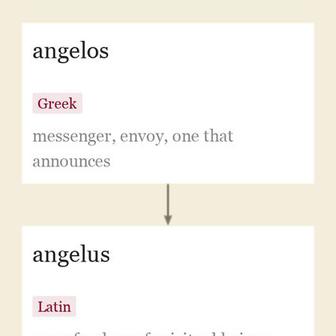angel-fish n.
also angelfish, 1660s, from angel + fish (n.); so called for its wing-like pectoral fins.
Entries linking to angel-fish

"
The Greek word was used in Scriptural translations for Hebrew mal'akh (yehowah) "
Of persons, "
"
Popularly, since Old English, "
Fish (n.) for "
updated on October 10, 2017